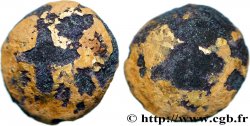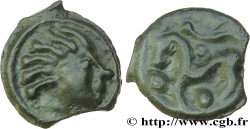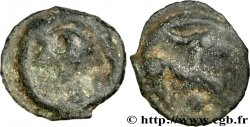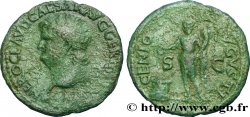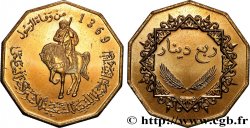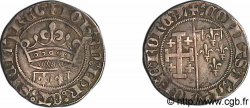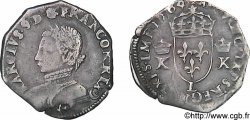E-auction 575-521498 - bga_507536 - SENONES (Area of Sens) Potin “à l’animal cornu”
You must signin and be an approved bidder to bid, LOGIN TO BID. Accounts are subject to approval and the approval process takes place within 48 hours. Do not wait until the day a sale closes to register. Clicking on « bid » constitutes acceptance of the terms of use of cgb.fr private e-auctions.
Bids must be placed in whole Euro amounts only. The sale will start closing at the time stated on the item description; any bids received at the site after the closing time will not be executed. Transmission times may vary and bids could be rejected if you wait until the last second. For further information ckeck the E-auctions F.A.Q.
NO BUYER'S FEE.
NO BUYER'S FEE.
| Estimate : | 150 € |
| Price : | 69 € |
| Maximum bid : | 97 € |
| End of the sale : | 22 April 2024 14:11:00 |
| bidders : | 5 bidders |
Type : Potin “à l’animal cornu”
Date: Ier siècle avant J.-C.
Metal : potin
Diameter : 16,5 mm
Orientation dies : 10 h.
Weight : 2,79 g.
Rarity : R3
Coments on the condition:
Belle monnaie pour ce type rare, sur un flan irrégulier. Droit complet avec une patine sombre et brillante, mais revers partiellement recouvert de concrétions
Obverse
Obverse legend : ANÉPIGRAPHE.
Obverse description : Tête fortement stylisée à gauche, le crane nu ; une série de globule sous et derrière la tête.
Reverse
Reverse legend : ANÉPIGRAPHE.
Reverse description : Animal stylisé et cornu à droite ; un globule entre les jambes.
Commentary
Ce type de potin semble se diviser en plusieurs variétés, selon qu'il y ait ou pas un torque qui entoure l'arrière du crâne, et éventuellement selon la présence du globule entre les jambes du cheval. Cet exemplaire a bien le torque derrière la tête au droit et un gros globule entre les jambes du cheval au revers, comme sur le DT. 2652.
This type of potin seems to be divided into several varieties, depending on whether or not there is a torque surrounding the back of the skull, and possibly depending on the presence of the globule between the horse's legs. This example has the torque behind the head on the right and a large globule between the legs of the horse on the reverse, as on the DT. 2652
This type of potin seems to be divided into several varieties, depending on whether or not there is a torque surrounding the back of the skull, and possibly depending on the presence of the globule between the horse's legs. This example has the torque behind the head on the right and a large globule between the legs of the horse on the reverse, as on the DT. 2652







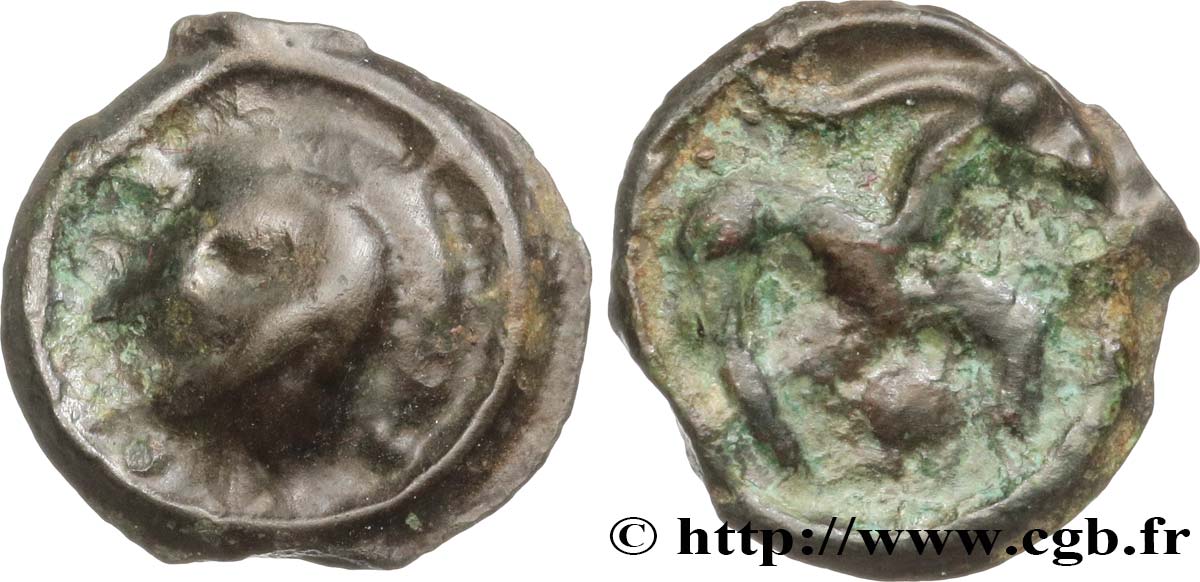
 Report a mistake
Report a mistake Print the page
Print the page Share my selection
Share my selection Ask a question
Ask a question Consign / sell
Consign / sell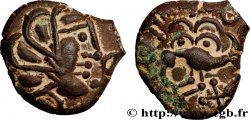
 Full data
Full data